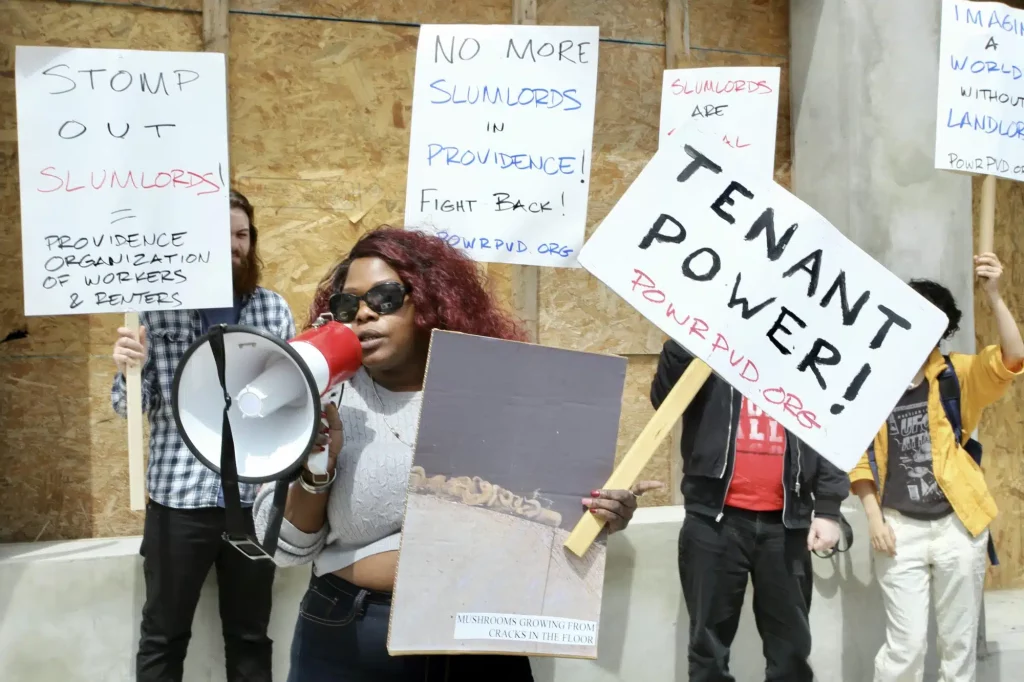
Photo: Steve Ahlquist
Article written by Mike (member of POWR: Providence Organization of Workers and Renters)
The city of Providence has become increasingly unlivable for working-class families. Rents have gone up 20% in the last 3 years in Providence. Wages have not kept up with inflation, let alone the price gouging rental prices. Median rent for a 2-bedroom is now $1900. The state’s own data shows that 47% of Providence renters are rent burdened (they pay more than 30% of their income to rent). It is normal for apartments to be rented with basic housing code violations – rats and bugs, leaky roofs, shoddy heat, and half-functioning appliances. Rental protections are weak, code enforcement is understaffed – and when they do respond, landlords frequently ignore their citations. It’s more profitable to be a slumlord, ignoring tenants’ complaints and code enforcement fines, than it is to be a landlord using your excess property to simply profit off people who don’t have the means to own property of their own.
Tiara Graham is a Providence mother raising two boys in Mt. Pleasant and a member of Providence Organization of Workers and Renters (POWR). She has lived in the same apartment for six years in a 3-unit building built in the 1870s, consistently paying her rent. Like too many Providence renters she has been forced to pay hidden penalties on top of her rent; she has put up with drafty windows sucking up heat, musty cupboards she can’t use, dangling broken railings, persistent mold she has to battle with, and periodic mushrooms growing out of the gaps in the floor. Then her son was lead poisoned after the landlord decided to hastily renovate her apartment in an effort to sell the house last fall. After providing insufficient legal notice that he was sending a repair crew out, lead paint chips were strewn all over the kitchen. The sale price of the triple-decker Tiara has rented a unit in was listed at a price three times what the landlord bought it for 10 years earlier, as mushrooms grow through the cracks in the floor, the rungs to the front railing clank in the wind, and her son sleeps in a room with unsafe levels of lead. The landlord, Terryl Desuze, has sold over a half-dozen of his rental properties in Providence in the past couple of years, taking advantage of inflated housing prices post-Covid.
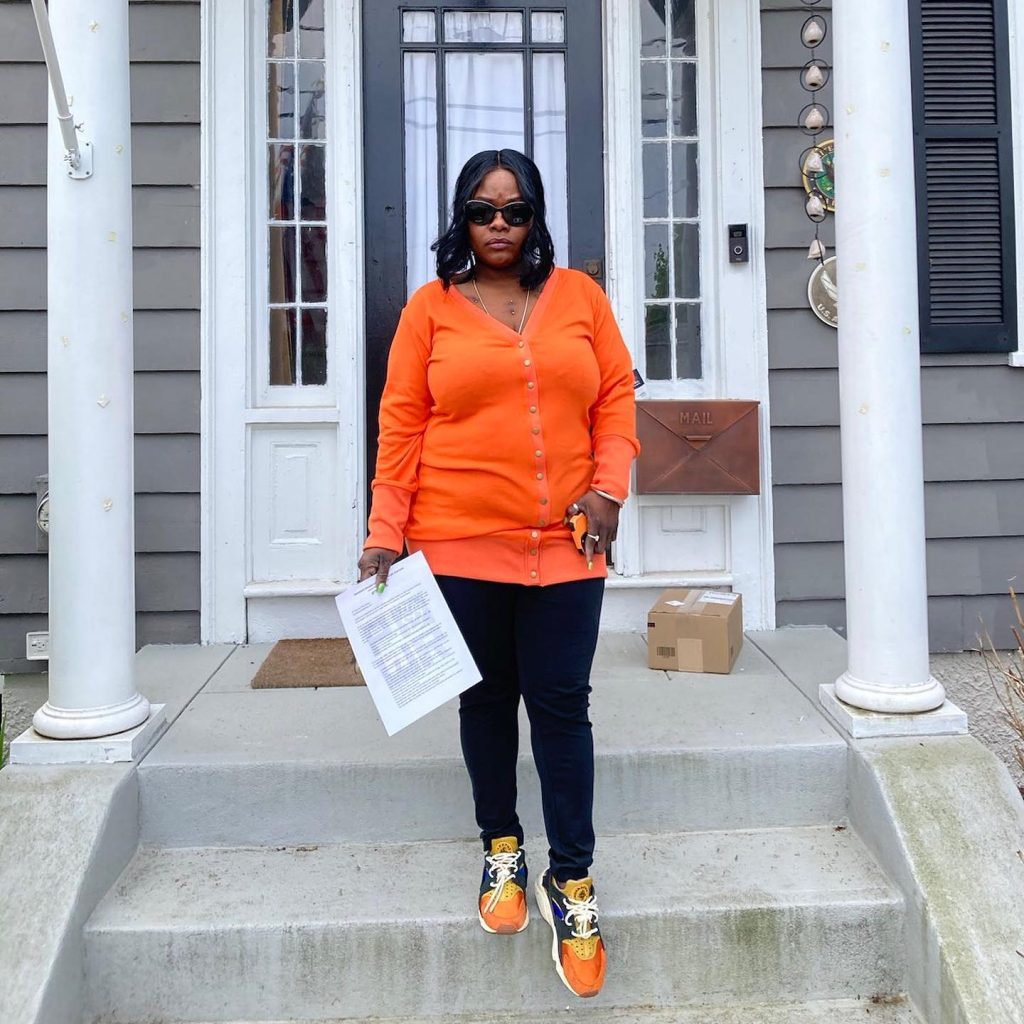
Photo: Tiara serving a demand letter to her landlord
Desuze filed to evict Tiara and her two boys, a process that is historically stacked in favor of landlords in many ways. No one should be forced to face eviction adding to the growing numbers of people without a place to stay, in a society that has more vacancies than houseless people. No one should be getting evicted from apartments without a certificate showing that they are lead-safe, let alone the slew of code violations that are still present in Tiara’s apartment months after the city found the violations. In Providence, as in many places, the city will cite a landlord for failing to meet basic safety conditions, and then turn around a couple of months later and help the landlord evict the residents who raised the concerns. Before her eviction hearing last week Tiara reached an agreement with the landlord to leave the apartment in August in exchange for not having to pay 5 months of past and future rent. While Tiara and POWR consider this a victory, it still leaves her looking for a safe apartment for her and her kids that she can afford. For renters struggling with their landlord over conditions or just looking for a place to stay, all too often the best outcome is still not that great.
A Housing System with No Equity
It is the nature of the for-profit rental system and a government housing policy not designed to protect tenants that facilitates these outcomes. Tenants pay their landlord’s mortgage and build their wealth. Tenants quite often pay rents that exceed the monthly mortgage costs of mortgages they can’t qualify for, in spite of paying exorbitant rents for years. The rent that tenants pay generally covers the monthly mortgage for the unit, plus taxes and insurance. After years of having equity built for them by the tenants the landlord can sell the property for far more than the original purchase price. They cash in on the speculative nature of real estate values by profiting off their tenants’ lack of alternatives.
Landlords across Providence and throughout the state have been steadily raising rents the past few years. Not because their costs have gone up. Not because they’ve been renovating their properties, or even bringing them up to code in a lot of cases. Not because their taxes have gone up, though Mayor Smiley is trying to help with that. They are raising rents because it is in their best interest and they can – simple profit-seeking and supply and demand. Rhode Island has very few protections for renters, substandard enforcement of what protections actually exist, and a speculative housing squeeze that leaves renters paying too much for too little roof over their head (sometimes literally). In a rental environment where these dynamics are baked into the structure, like lead paint in a wall, unsafe housing conditions and unsustainable rent burdens are a sunk cost that tenants have to pay just to exist as working-class people in a society designed to take as much from them as possible.
What happened to Tiara and her children was not a simple mistake, nor is her landlord just greedy. This is one of many examples of the criminal self-interest that is often the norm in the rental market in this city. It is informally sanctioned criminality, it is also violent – in that it has done lasting damage to her son’s body and the stress it has caused Tiara. This is how the rental housing system works in Providence (and much of the country): criminal neglect, lasting harms to those forced to overpay, and a regulatory system that rarely works. When it does it doesn’t work very well. Renters are forced to put up with these living conditions because they know it probably is not any better someplace else. Landlords engage in these practices because they know they can get away with it, and even if they get fined it’s just a fraction of the profits they just made. The boldest action the city takes is a tax lien, which landlords don’t even have to pay until they sell the house – amounting to some extra paperwork at closing when they sell the property for way more than they bought it for.
Mayor Smiley, Landlord-in-Chief
All the while city hall fawns over parasitic investors, giving them unending tax breaks (the abandoned Fane tower high rise project, the long-empty Superman building, the Union Station food hall going in across from the Providence Place Mall, the Mall itself, which has paid zero property taxes since being erected in the 90s). The current city leadership is doing nothing to curb rental increases (let alone reverse them), doing nothing to build affordable housing, and not even discussing short-term relief schemes that might give off the impression they were trying to help renters. The landlord-in-chief, Mayor Smiley, recently submitted his budget which includes increasing property taxes $400, a tax which will surely get handed down to renters, while Brown University and Rhode Island Hospital continue to pay no property tax.
It has been over 9 months since city inspectors found unsafe levels of lead in Tiara’s apartment. City inspectors have been out several times since citing numerous other code violations. The landlord hired his own inspector four times, failing to get a certificate saying the property is lead free. Before heading into eviction court, the landlord was somehow able to obtain a lead certificate, though the Rhode Island Department of housing detected the lead the following week when documenting the other code violations still present in the apartment. The city has no specified lead inspector and has no official, direct mechanism to protect kids from lead poisoning once lead is detected. There is no emergency housing for Tiara’s family or housing program which could make safe, affordable housing available. There is no mechanism for the city to seize the property or to otherwise force Desuze to fix the lead or other violations, besides fines which amount to a slap on the wrist.
Landlords: The Bed Bugs of the Parasite Class
People talk about landlords as if they are struggling small businesspeople, taking risks to providing an essential service to consumers. The landlords consider themselves “housing providers” who are under-appreciated by their tenants and over-regulated by the state.
While there is a great deal of variation among “housing providers” – between the developers of multi-billion luxury apartment buildings and a guy who owns a few small rental properties he can retire on, their social position in relation to tenants and the state is very similar. Whether they are short-term house-flippers or long-term owners of units, the position of a landlord is to extract revenue out of tenants in the process of managing a speculative asset (the property itself). They are more like mini-banks, they make money off of the money they already have, by owning things rather than producing things. Many of them are also leveraged to the extent the bigger banks will allow, using the value of properties in their portfolio (which is often mortgaged and only partially paid off) as collateral for future housing purchases. These are not the small businesspeople that own the bodega down the street that might let you run a tab when you send your kid to get a bag of flour, this is a petty version of the bank that sends you a notification that your credit card interest rate just went up and if you don’t like it too bad. They are an increasingly politically organized class of people who seek to make as much money as they can off their investments.
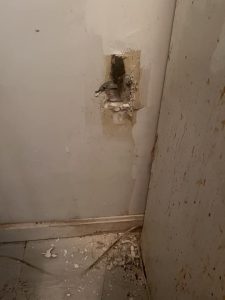
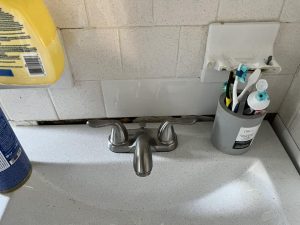
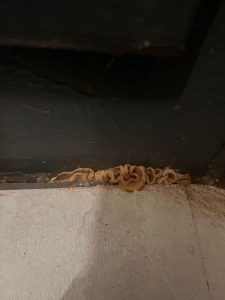
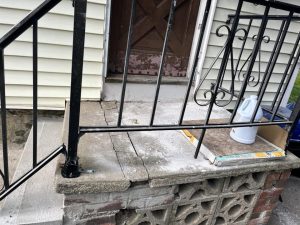
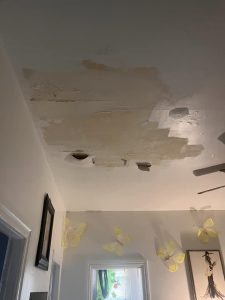
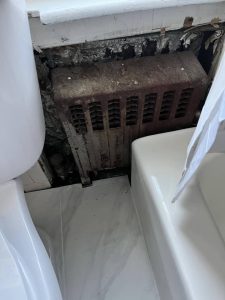
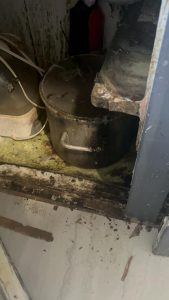
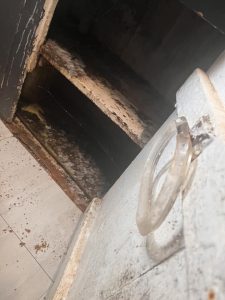
Image gallery: Conditions at Tiara’s apartment
Solidarity Means Fight Back!
Landlords are organized, pushing back against a slew of bills trying to actually address the lead problems in Providence’s housing stock. The Providence Organization of Workers and Renters (POWR) exists to confront forces like this politically but also to organize renters and workers to advance substantive and radical solutions to the problems we face that go far beyond simply giving housing inspectors a few more teeth. POWR is a grassroots organization, with no paid staff, that operates off principles of direct action and solidarity. We have all paid too much in rent. Some of us have seen our kids get sick over housing conditions we could not control. Some of us have been homeless. All of us work jobs that don’t pay us what we’re worth. In the past two months, POWR has helped Tiara serve a demand letter to her landlord’s home, has rallied in front of one of his Providence properties and marched to the code enforcement office, and accompanied her with various inspectors’ visits, organized a press conference at the state house, and showed up at her apartment when the Providence Police and the landlord were attempting what seemed very much like a self-help eviction attempt. After receiving a slew of calls of support for Tiara from POWR members and our allies, Terryl Desuze baselessly smeared Tiara as an unfit mother in response to a proposal that the unit be brought up to code or for Tiara to be given resources to relocate. Desuze also responded by spreading rumors about Tiara amongst other landlords and online. The next day the Department of Children, Youth and Families (DCYF) showed up at Tiara’s door based on an anonymous tip, with complaints mirroring the smears that Desuze was spreading. Tiara and her children endured the further trauma of this harassment and, along with a growing base of supporters, was emboldened to see a just outcome to this ordeal. While Tiara is moving out of the unsafe conditions she has been forced to endure with her two kids, and she got rent relief rather than an eviction at her hearing, safe and affordable housing is hard to find. For families stuck in unsafe conditions The city has no program or mechanism to assist them in finding new housing.
Tiara’s struggle against her landlord and the conditions in her apartment are not uncommon in Providence. As rents continue to rise and taxes on many Providence rentals are proposed to increase, the quality of housing for workers in Providence declines as the rents go up. Without a multi-faceted, protracted effort to reverse these trends they will persist. There is a very long way to go, but the seeds of working-class resistance are starting to sprout.
